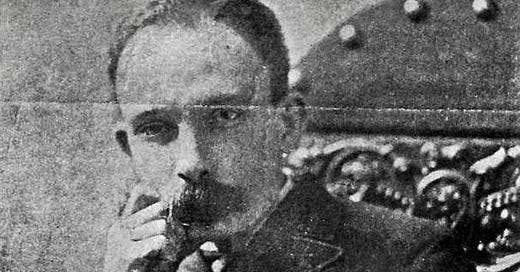José Martí in Washington, DC, 1891. Published in “Patria" (Nueva York, 25 de junio de 1895, año III, núm. 167). Source: Secretaría de Instrucción Pública y Bellas Artes, Cuba.
Guantanamera
Guajira Guantanamera
Guantanamera
Guajira guantanamera
Yo soy un hombre sincero
De donde crece la palma
Yo soy un hombre sincero
De donde crece le palma
Y antes de morirme quiero
Echar mis versos del alma
Guantánamo woman
(Cuban) country lady, Guantánamo woman
I am a sincere man
From where the palms grow
And before I die, I want to
Cast away my verses of the soul
If you are familiar with the above verses, you know one of the most recognizable verses in the Spanish language. If you are an anti-imperialist activist, this song is integral to your vocabulary. If you are a student of José Martí - journalist, poet, essayist, educational philosopher, organizer in exile in the US for the original Cuban Revolution, and Major General in its army, this song is at the core of your being. If you’re into folk music, you’ve probably heard this song more times than you care to remember. If you stand in opposition to six decades of US meddling, blockades, and violence in Cuba, and for Caribbean liberation, he’s an inspiration.
And if you know your “Guantanamera,” then you know this powerful line:
Con los pobres de la tierra
Quiero yo mi suerte echar
With the Poor of the Earth
I wish to cast my lot
“Guantanamera” is actually a medley of lines derived from Martí’s book of poems Versos Sencillos (Simple Verses). Long after his sacrifice in the Cuban War of Independence was the song born as an easy singalong in the Cuba’s traditional son, from which salsa would eventually be born. Its melody has made it part of the repertoires of many artists in most Spanish-speaking Caribbean musics and numerous other genres.
It is profound to realize that “Guatanamera,” at once an ode to a lovely lady and a love song for the Earth, has touched hearts, minds, and bodies all over. Here are only two examples of that power in innumerable performances of Cuba’s Patriotic Song.
First, from the masters of charanga, Orquesta Aragón, who are still going strong 85 years this year.
Second, even among Cubans who opposed the Cuban Revolution, “Guantanamera” remains a song of Cuba, and José Martí remains El Apóstol for them too. (For those of you who think about how people of different ideologies can find themselves in agreement, here’s an old clue.) This is Celia Cruz kicking it in preparation for the 1974 Kinshasa (in present-day DR Congo) Fania All Stars Live in Africa concert and one of the best concert documentaries ever. (The flautist who is also directing the orchestra is Johnny Pacheco, composer and co--founder of Fania Records. On congas is the inimitable Ray Barretto. Cuban ,Dominican, and Puerto Rican respectively together on one stage.)
US Hands Off Cuba!
End the embargo!
US Out of Guantánamo!
Free Puerto Rico!
Cast our lot with the Poor of the Earth!




Thank you for this article. I never knew the history of the song. I've always liked it but didn't really understand what it was saying (even with my smattering of Spanish). I really like those last lines, too:
End the embargo!
US Out of Guantánamo!
Free Puerto Rico!
Cast our lot with the Poor of the Earth!
I had no idea of the significance of this song. Thank you for another important lesson, and the footage of Celia Cruz. That is some sound check! I love the way she suggests the song, then totters over to the mic so casually and then...BOOM! Performance! Fantastic.
Just going to play that one more time......at least...